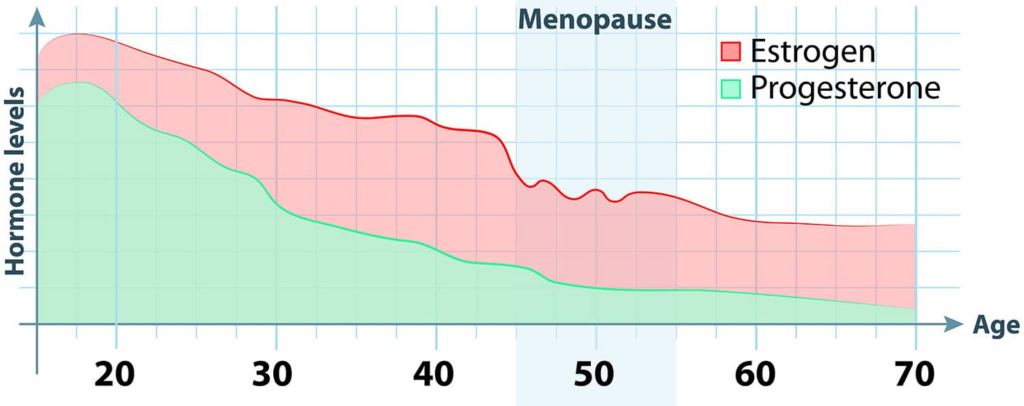Breaking the Menopause Taboo: Why Gen Z Women Are More Prepared Than Ever

Maria H. Alaniz is the Director of Social Media for…
For decades, menopause has been a topic shrouded in silence, a life stage that many women faced with uncertainty and often navigated alone. However, a significant shift is underway. As societal attitudes evolve, younger generations, particularly Gen Z, are entering this stage of life with greater knowledge, confidence, and support than their predecessors. Recent research highlights this generational shift, revealing that Gen Z women are better prepared to face menopause, signaling a broader cultural change that could redefine how women experience “The Change” in the future.
A Generational Shift in Understanding Menopause
A study of 2,000 women, commissioned by Vitabiotics Menopace, sheds light on how perceptions of menopause have evolved across generations. The findings are telling: 63% of women who are currently experiencing or have gone through menopause believe that Gen Z will have a more positive experience. This optimism is rooted in the growing awareness and education that has been steadily increasing over the past decade.

For many Gen X women, menopause was a journey they undertook with little guidance or information. The study found that 50% of Gen X women admitted to entering this phase of life “blindly,” with minimal knowledge about what to expect. This lack of preparedness often led to confusion, fear, and a sense of isolation during a time that can already be physically and emotionally challenging.
In stark contrast, nearly half (48%) of Gen Z women feel they already have the information they need to navigate menopause when the time comes. This significant difference highlights the impact of increased dialogue, education, and visibility of the topic in public discourse. Unlike previous generations, Gen Z women are benefiting from a wealth of resources and conversations that are empowering them to approach it with a sense of normalcy.
Breaking the Silence
A crucial factor in this shift has been the role of celebrities in normalizing the conversation. Public figures like Brooke Burke are leading the charge, using their platforms to speak openly about their experiences and encouraging others to do the same. Burke, a well-known actress, fitness guru, and advocate for women’s health, has been particularly vocal about the importance of discussing women’s health topics openly.

This September, Breathe Media has partnered with Brooke Burke to host a unique event at her private estate, Soul Creek Sanctuary, in Malibu. Titled “Womenopause,” this exclusive, ladies-only gathering is designed to bring together women from different generations for a day of candid conversations, expert-led discussions, and holistic wellness practices. With its intimate setting and focus on the “naked truth” about being a woman, this event exemplifies the kind of open dialogue that is helping to break down the stigma.
The “Womenopause” event is not just about sharing experiences—it’s about creating a space where women can learn from one another, ask questions, and explore the transformative journey in a supportive environment. By involving experts who can provide evidence-based insights, and by facilitating honest, unfiltered conversations, this event aims to empower women with the knowledge they need to navigate menopause with confidence. The inclusion of a unique aphrodisiac-inspired dinner underscores the event’s focus on embracing all aspects of womanhood, even those that are often considered taboo.
Driving Intergenerational Conversations
One of the most significant outcomes of events like “Womenopause” is the opportunity for intergenerational dialogue. By bringing together women from different age groups, these events help bridge the gap between older and younger generations. For Gen Z women, who are already more comfortable discussing menopause than their predecessors, this kind of environment offers a valuable chance to learn directly from those who have experienced it firsthand.
This is where the role of public figures like Brooke Burke becomes particularly powerful. When a celebrity shares her personal journey, it not only normalizes the conversation for other women but also encourages younger generations to engage with the topic more deeply. For instance, seeing someone like Burke, who is often associated with fitness and vitality, discuss her own experience with menopause can help dismantle stereotypes and empower younger women to approach this stage of life with a positive, informed mindset.
The Importance of Research and Awareness
While the increased openness and celebrity involvement are essential, it is also crucial to recognize the ongoing gaps in research that impact women’s health. Despite the importance of menopause in the aging process, a staggering 99% of studies on the biology of aging fail to consider menopause. This oversight leaves a significant gap in understanding how menopause influences aging and contributes to age-related diseases.
Dr. Fabrisia Ambrosio, a senior author of a recent perspective in Nature Aging and an associate professor at Harvard Medical School, has emphasized the need for better research models that reflect the unique aspects of female aging, including menopause. Ambrosio’s work highlights the urgent need for more comprehensive studies that can inform clinical practices and improve health outcomes for women as they age.
The “Womenopause” event can play a role in addressing these gaps by raising awareness and encouraging more conversations around the need for research. When women are informed about the lack of scientific understanding around menopause, they can become advocates for change, pushing for more inclusive and comprehensive research that benefits future generations.
Gen Z: Leading the Charge Toward a Menopause-Positive Future
Despite the gaps in research, Gen Z women are entering adulthood with a level of awareness and comfort around menopause that is unprecedented. The study found that 61% of Gen Z women are “comfortable” discussing menopause whenever the topic arises. This openness is a stark contrast to the experiences of older generations, many of whom were taught to view menopause as a private, even shameful, issue.
Gen Z’s comfort with discussing menopause is part of a broader trend toward openness about health and well-being. This generation has grown up in an era where conversations about mental health, gender identity, and sexual wellness are more normalized, and this extends to their approach to menopause. Gen Z women are more likely to seek out information, advocate for their health, and engage in conversations about topics that were once considered taboo.
This generational shift offers hope for a future where menopause is not just normalized but also embraced as a natural and empowering stage of life. Events like “Womenopause” are vital in facilitating this change, providing platforms where women can come together to share, learn, and support one another.
The Road Ahead: Continuing the Conversation
The increased visibility of women’s health topics in media and the engagement of younger generations are all contributing to a more open and informed dialogue. However, there is still much work to be done to ensure that every woman has the knowledge and resources she needs to navigate each stage of life confidently.
Maria H. Alaniz is the Director of Social Media for Breathe Media, a Miami-based media company promoting wellness and mindfulness. With years of experience in managing influencers, project management, and social creative leadership, Maria brings a wealth of knowledge to the team. She is also a weekly contributor to Breathe Media domains, providing new insights and perspectives on wellness experiences. Maria is dedicated to inspiring people to live healthier, more fulfilling lives through her work with Breathe Media.

